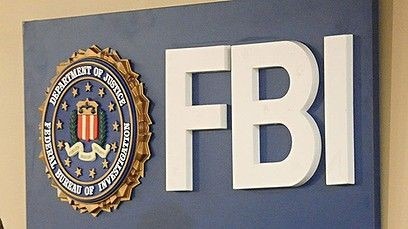Unexpectedly, the Federal Bureau of Investigation (FBI) and the Drug Enforcement Administration (DEA) will not be releasing the long-awaited documents that were supposed to be made public today about a purported drug investigation involving President Bola Tinubu.
The FBI and DEA were ordered to make the documents available by May 2, 2025, by U.S. District Court for the District of Columbia Judge Beryl Howell in April.
However, in a joint status report submitted to the court on Thursday, May 1, the agencies asked for an additional ninety days to disclose the records.
The case is based on a Freedom of Information Act (FOIA) lawsuit that Aaron Greenspan, a transparency activist in the United States, filed in June 2023.
Investigative documents from multiple U.S. government agencies pertaining to a Chicago drug trafficking and money laundering case in the 1990s that was purportedly connected to Tinubu and others were sought in the lawsuit.
Court records show that between 2022 and 2023, Greenspan sent 12 different FOIA requests to the CIA, FBI, DEA, Internal Revenue Service (IRS), U.S. Department of State, and U.S. Attorneys’ Offices in Indiana and Illinois.
The main goal of the requests was to gather information about four people who were allegedly connected to the drug ring: Bola Tinubu, Mueez Akande, Lee Andrew Edwards, and Abiodun Agbele.
However, in their latest filing, the FBI and the DEA said they needed more time to complete their searches.
The report reads, “Aaron Greenspan (“Plaintiff”) and Defendants Federal Bureau of Investigation (FBI) and Drug Enforcement Administration (DEA), the only remaining defendants in this case, respectfully submit the following joint status report proposing a schedule to govern further proceedings, pursuant to the Court’s Order of April 8, 2025 (ECF №47).
“Pursuant to the court’s order, the defendants, FBI and DEA must search for and produce non-exempt records responsive to the plaintiff’s FOIA requests (FBI Requests Nos. 1588244–000 and 1593615- 000, and DEA Request Nos. 22–00892-F and 24–00201-F).
“The FBI and DEA have initiated their searches for responsive, non-exempt, reasonably segregable portions of records requested by the plaintiff and anticipate completing their searches in ninety days.”
Greenspan, however, was not pleased with the idea and suggested a much shorter timetable, claiming that the agencies had already postponed the procedure for years.
The plaintiff suggests that the FBI and DEA finish their searches and productions by next week, or at the very least, produce unredacted versions of the already-identified documents by next week, with the remaining documents finished in 14 days, considering the years-long delay already caused by the defendants and the fact that many responsive documents have already been identified.
The defendants don’t explain why their 90-day document search should take that long.
“The FBI and DEA have initiated their searches for responsive, non-exempt, reasonably segregable portions of records requested by the plaintiff and anticipate completing their searches in ninety days,” Greenspan said.




































